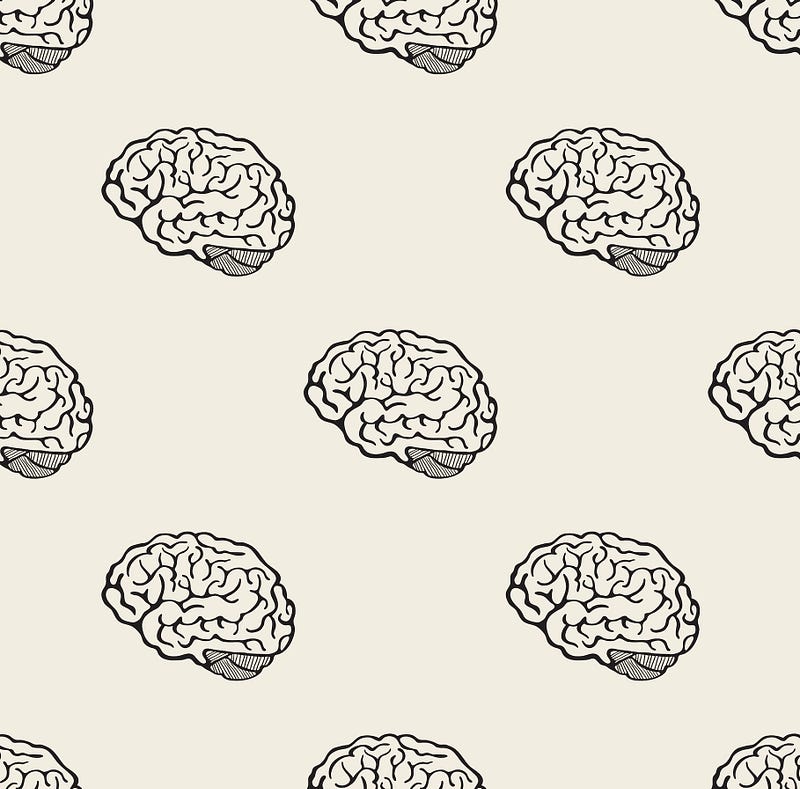# Reviving Critical Thinking: A Conscious Call to Action
Written on
Chapter 1: The Diminishing Art of Critical Thought
The aspiration is to cultivate independent thinking and to become more aware of my thought processes.

Lately, I find myself accustomed to brief summaries of significant news—just the highlights, omitting the full narrative. This trend is unsettling, yet I'm increasingly mindful of my reading habits. It’s disheartening, especially since I know I could do better. I strive to select my sources wisely, but I still fall short of engaging in deep, thoughtful reading. The true essence of critical thinking resides in the nuances I tend to overlook. What happened to the multitude of books I purchased? My shelves overflow with a curated collection, yet I often find myself scrolling through my phone instead of immersing in physical books. Although I claim to be pressed for time, I often wonder why I’ve grown so accustomed to consuming quick bites of information.
Bite-sized media and viral content are dominating our mental landscapes.
Condensed book summaries, news snippets, and skimming techniques have become preferable to lengthy articles and physical books. It's all too easy to get lost in the digital noise. This decline is gradual, not abrupt. We settle into our established beliefs, surrounded by like-minded individuals. The internet curates content that echoes our preexisting views. Confirmation bias gives us a false sense of validation, even if it strays far from reality. Philosopher and psychologist William James astutely observed, “Many people believe they are thinking when they are merely rearranging their prejudices.”
The spectrum of reality is not simply black and white.
The genuine truths lie within the rich essays and narratives we neglect. There are complexities and perspectives we disregard that could enhance our critical thinking abilities. This includes our capacity to question everything, explore varied viewpoints, and develop well-informed opinions. Critical thinking requires exercise, much like a muscle. However, we aren’t exercising it adequately. We tend to accept information at face value, prioritizing headlines over understanding deeper truths.
By neglecting “time-consuming” essays, we miss out on knowledge that could refine our understanding. This avoidance blinds us to ideas beyond our limited vision. Becoming accustomed to intellectual laziness has tangible repercussions; I may make poor decisions that affect both my present and future. I risk falling prey to misinformation and manipulation. The erosion of critical thinking is alarming, as it diminishes our ability to draw from diverse knowledge sources. As Josh Lanyon points out in Come Unto These Yellow Sands, “If there was one life skill everyone on the planet needed, it was the ability to think with critical objectivity.”
The solution? It’s straightforward but often challenging.
I need to become an active consumer of quality literature and select reputable news sources across various categories. I must ask more questions, challenge the status quo, and delve deeper into the details. Enhancing my media literacy is essential; I need to identify biases, recognize propaganda, and assess the credibility of information. Developing skills to detect logical fallacies and distinguish fact from fiction is crucial. It’s not about being right or wrong, but rather about pursuing truth to become a more informed individual.
The goal is to foster independent thinking and sharpen my awareness of my thoughts and reasoning.
This is a personal responsibility. I must resist the temptation to let others do my thinking for me and learn to trust my intellect and instincts. When I unthinkingly adopt a belief, opinion, or ideology without scrutiny, I forfeit my capacity for independent reasoning. Miguel Ruiz eloquently states in The Four Agreements, “Whenever we hear an opinion and believe it, we make an agreement, and it becomes part of our belief system.” Thus, I must tread carefully regarding what I accept as truth. As Pauline Baynes noted in Questionable Creatures, “Believe what you like, but don’t believe everything you read without questioning it.”
However, transforming critical thinking into a habitual practice will require deliberate effort and discipline. The alternative is far more daunting. A society devoid of critical thinking is easily manipulated, fragmented, and ultimately doomed to fail. We owe it to ourselves and future generations to make critical thinking a routine. I must shake off passive consumption and engage with the world around me with a curious and analytical mindset. “It is not enough to have a great mind. We must engage it well.”
Although I consume information rapidly, am I genuinely processing it? Do I scrutinize the sources? Or do I passively accept it as truth?
Actor Alan Alda advises us to test our assumptions. “Begin challenging your own assumptions. Your assumptions are your windows on the world. Scrub them off every once in a while, or the light won’t come in.” Both you and I have the power to shape our digital reading habits. We must slow down, take the time to reflect on what we read, be more mindful of the details, and resist the desire for immediate answers. Together, we can enact this change.
We have the ability to revive critical thinking.
Critical thinking may be quietly fading, but together, we can restore it.
Join my email list with over 60,000 inquisitive individuals who receive my best essays and access to free curated tools for conscious living.
Chapter 2: The Impact of Media Consumption
The first video, The Rise Of NPCs: Why Critical Thinking Is Dead, explores the alarming trends in media consumption and critical thinking skills. It dissects how societal norms contribute to a decline in independent thought.
The second video, You're Not Stupid: Critical Thinking in Ten Minutes, offers a quick yet effective guide on enhancing critical thinking skills and emphasizes the importance of questioning information sources.